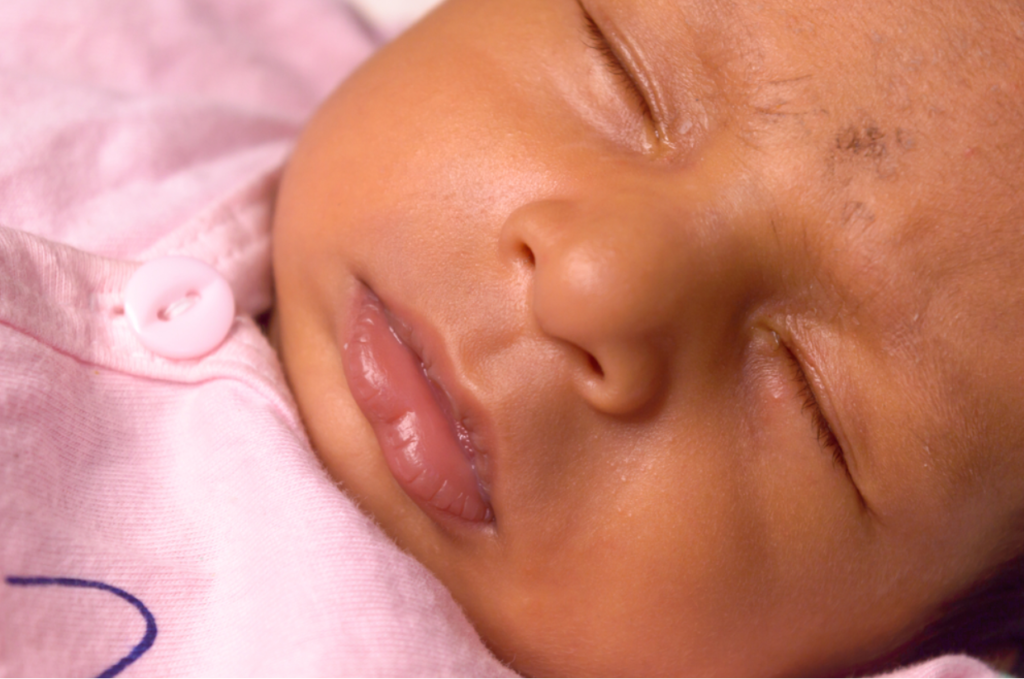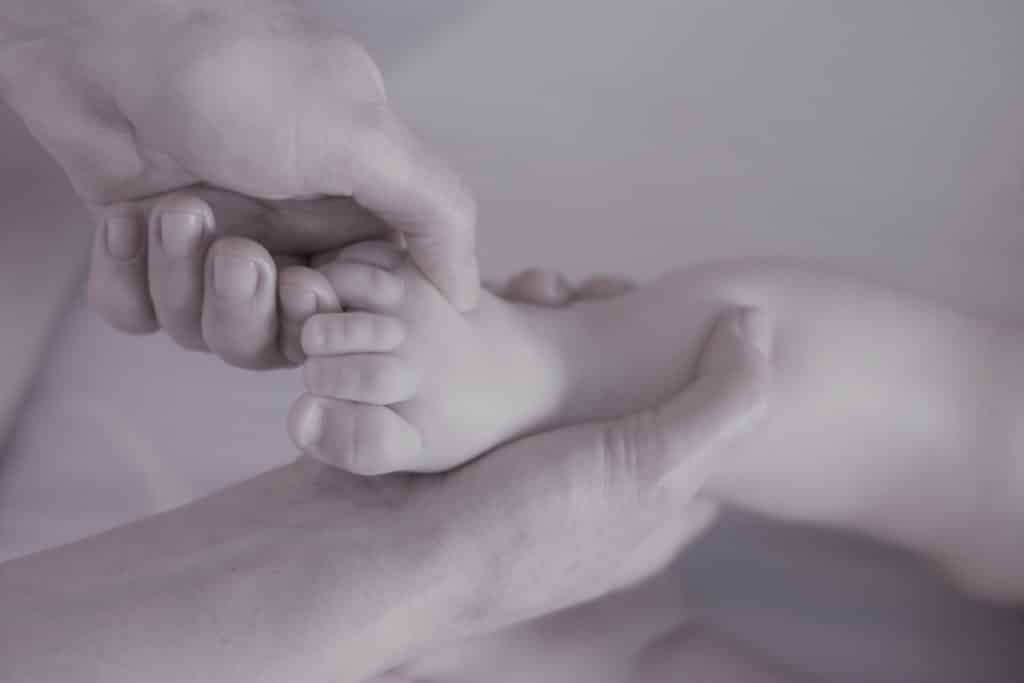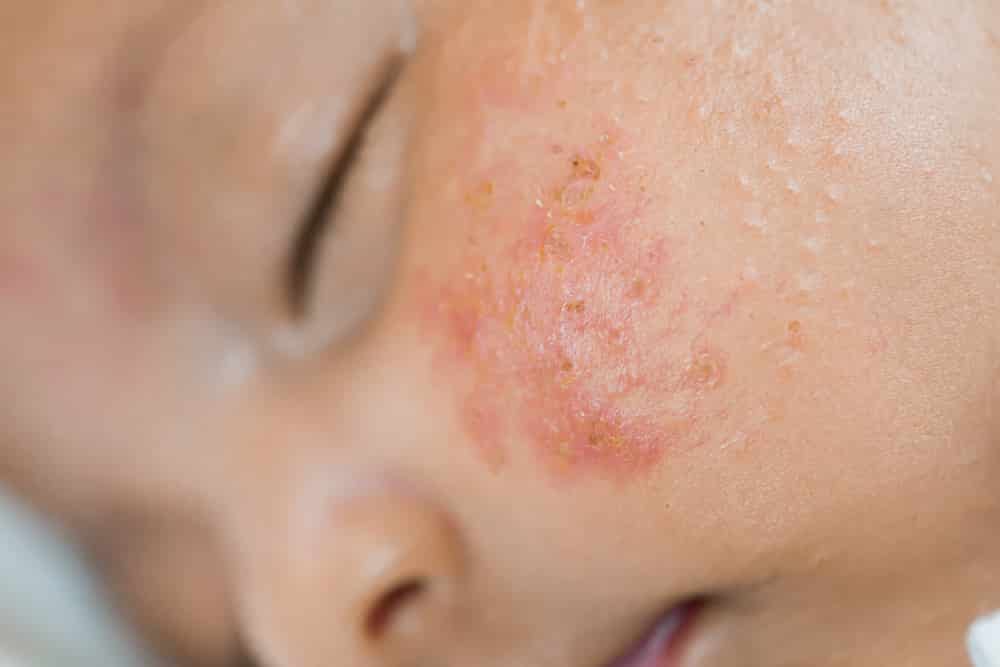Bringing a newborn into this world is a unique experience for every woman. Most times, this period is marked by expectations, emotions, and excitement. It can even be a challenging time for you, as you aim to keep your little one safe and healthy always. This challenge may even seem more difficult when various factors cause a newborn’s skin to peel.
Table of contents

However, if your newborn baby’s skin begins to peel a few days after birth, there’s nothing to worry about. It is actually a common occurrence among newborns. To ease your worries, this article contains all you need to know about the causes and treatment of newborn skin peeling.
Is It Normal For Newborns’ Skin To Peel?
Of course, this is probably the first question on your mind if your newborn’s skin is peeling.
Here’s the fact: It is absolutely normal.
In fact, babies experience a lot of physical changes in the first few weeks of life; from hair and eye color changes to physical growth spurts. Your baby’s complexion may even change in the first month.
Newborn skin peeling can occur at any part of the body, like the hands, feet, and ankles. Furthermore, the skin may also appear flaky or crusty.
During pregnancy, your little one was surrounded by protective fluids. After birth, these fluids are no longer present, exposing his/her skin to dry air. Sometimes, this switch can be tasking. Immediately your nurse wipes off your baby shortly after birth, your newborn will begin to shed the outer layer of his/her skin for about three weeks.

Recent medical research shows that the amount and distribution of skin peeling depend on whether your baby was premature, on time, or overdue. Premature babies usually don’t experience as much skin peeling as babies born after 40 weeks.
In all instances, skin peeling after birth is normal and nothing to worry about. It would go away on its own in due time.
Why do Newborn’s Skin Peel? The Major Causes
1. Vernix Caseosa
As we mentioned earlier, your baby was surrounded by various protective substances in the womb. One of these is called Vernix – a thick, waxy coating that protects him/her from amniotic fluid. According to the American Pregnancy Association, vernix begins to form in the 20th week of pregnancy.
Once the vernix is cleaned off after birth, your newborn becomes exposed to dry air which can cause skin peeling.
2. Eczema
Sometimes, skin peeling can also result from a skin condition called Eczema. Most times, eczema causes a baby’s skin to have many obvious, dry, red, and flaky patches. Although this condition is quite rare in the period after birth, it is more common during infancy.
If your baby has eczema, some amount of skin peeling is expected.
Your doctor may recommend special moisturizing creams to treat eczema in your newborn.

3. Psoriasis
This is a common genetic condition marked by the presence of reddish, scaly swellings on the elbows, knees, scalp, and chest. Although medical experts consider psoriasis to be an immune system issue, it causes skin cells to become scaly, dry, and itchy.
When this occurs, it can also cause skin peeling in babies.
4. Ichthyosis
This is another genetic condition that can cause skin peeling and dryness in newborns. When it occurs, this condition causes your baby’s skin to become itchy and scaly.
Most times, a diagnosis of ichthyosis is gotten from a physical examination and family history. Sadly, there is no cure for ichthyosis. However, applying certain moisturizing creams can reduce dryness and improve the overall health of your baby’s skin.
How To Treat Peeling Skin In Newborns
Although skin peeling is absolutely normal in newborns, you may be concerned about how your baby’s skin looks in some of the parts where the peeling is more obvious.
Don’t worry, you can try these simple hacks to protect your baby’s skin and relieve some of the dryness:
1. Reduce Bath time
Proper baths are important. However, long baths may wash off some essential natural oils from your newborn’s skin. In most cases, a 5 to 10-minute bath is sufficient for a newborn whose skin is currently peeling.
Furthermore, you should opt for lukewarm water instead of hot water and use fragrance-free, soap-free body cleansers for your newborn.
2. Add Some Oil
Oil is a very important component of your baby’s skin. You can improve the quality of your newborn’s bath by adding a drop or two of bath oil to the lukewarm water you plan to use. Read this article to discover the safest bathwater temperature for your baby.
This would preserve the natural skin barrier and keep your little one’s skin hydrated for as long as possible. In addition, bath oil will neutralize any strong chemicals that may dry out your baby’s skin if left unchecked.
3. Use a Moisturizer
If you’ve followed all the tips above and your baby’s skin still looks dry, you can apply a moisturizer to his/her skin twice daily (especially after a bath). Doing this would seal in as much moisture as possible.
Adequate moisture content would keep your baby’s skin soft, ease dryness, and loosen flaky skin.
4. Keep Your Baby Warm
As you try to reduce the effects of skin peeling on your baby, it is important to keep him/her warm all the time. Whenever you have to go out, make sure baby is well protected from extreme cold or wind. In fact, some jogging strollers have protective canopies for this purpose.
Furthermore, remember to cover your newborn’s hands and feet with socks or mittens whenever you leave the house. You can even place a blanket over his/her car seat for some extra protection. Read this article to find the best car seat option for your little one
5. Avoid Strong Chemicals
Your newborn’s skin is very sensitive.
As you care for your baby, please avoid using harsh or strong chemicals that can irritate his/her skin. In fact, this also applies to your baby hair products. Don’t use strong perfumes or scented products on your newborn’s skin.
In fact, when you go shopping for laundry detergent, select one that is designed specially for a baby’s sensitive skin.
6. Use a Humidifier
Is the air in your house too dry?
If your answer is yes, you need to use a humidifier for your baby’s sake. In fact, it can give you the big break you need as you care for your baby’s skin.
A good humidifier adds the right amount of moisture to the air in your home. This can even help relieve the symptoms of eczema and prevent newborn skin peeling.
7. Pick The Right Clothes
In addition to washing your baby’s clothes with the right detergent, it is also important to pick the right clothing at all times. As your baby’s skin develops, choose clothes made from soft fabrics that will not rub or irritate your newborn’s peeling skin.

Avoid dressing your little one in clothes that are too tight or hard on the skin. This may lead to irritation or rashes.
8. Keep Your Newborn Hydrated
Babies need a lot of fluids.
For newborns, fluids can only come from breast milk and/or baby formula. This liquid contains all your little one needs for the first six months of life in the right composition, quantity, and temperature.
Feeding your baby effectively would not only keep him/her healthy, but it’d also ensure that they stay hydrated.
In Conclusion
It is absolutely normal if your newborn’s skin peels for a while after birth. The fact is: there’s no way to prevent it.
However, the duration and amount of peeling vary from child to child. If you follow all the tips in this article, your little one is going to be just fine.
Finally, if you’ve followed these tips and the peeling or dryness doesn’t stop after a few weeks, please consult your doctor.
References
- Eczema: Causes and triggers. (n.d.).
nationaleczema.org/eczema/causes-and-triggers-of-eczema/ - Skin care for your baby. (2007).
ncbi.nlm.nih.gov/pmc/articles/PMC2528704/

